- Home
- ::
- How to Get a Medication Passport: Step‑by‑Step Guide
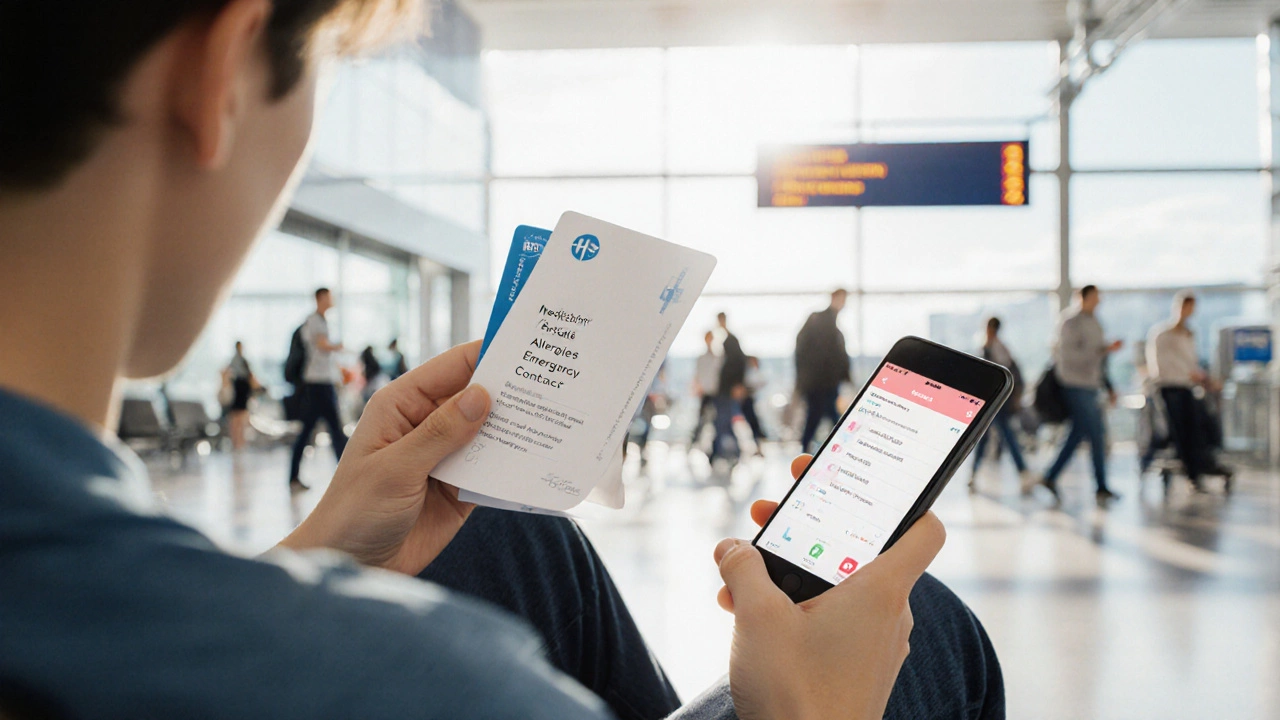
How to Get a Medication Passport: Step‑by‑Step Guide
Medication Passport Comparison Tool
Select the features you value most to see how paper and digital medication passports compare:
Select your preferences and click "Compare Formats" to see which option suits you best.
| Feature | Paper Passport | Digital Passport |
|---|---|---|
| Portability | Fits in wallet or travel pouch | Accessible on smartphone/tablet |
| Update Ease | Requires printing new copy | Instantly edit via app |
| International Acceptance | Widely recognized by doctors | Depends on local tech infrastructure |
| Risk of Loss | Higher if not stored safely | Can be backed up to cloud |
| Cost | Free to print (paper only) | Free apps available; premium features may charge |
When you hear the term medication passport, you’re looking at a concise, portable record of your prescription medicines, dosages, and critical health information designed for travel or emergency situations.
Key Takeaways
- Getting a medication passport is a free service through the NHS for most UK residents.
- You can choose a paper version, a digital app, or both - each has pros and cons.
- The whole process typically takes 1‑2 weeks if you have all your documents ready.
- Carry the passport alongside your ID and travel documents to avoid delays at borders.
- Update it whenever you change medication, dosage, or emergency contact.
What Exactly Is a Medication Passport?
Medication passport is a portable summary of an individual’s prescribed medicines, relevant medical conditions, allergies, and emergency contact details, intended for quick reference by healthcare providers abroad or in urgent care settings. It is not a legal document but a practical tool that complements your full medical record.
Why You Should Have One
Imagine you’re on a flight to Bali and suddenly feel unwell. The cabin crew asks for details about any chronic conditions you take medication for. Without a clear record, you could face delays, incorrect treatment, or even be denied boarding.
The National Health Service (NHS) is the publicly funded healthcare system in England, Scotland, Wales and Northern Ireland that provides most medical services free at the point of use recognises these risks and offers guidance on creating medication passports. Your General Practitioner (GP) is your primary care doctor who oversees prescriptions, routine check‑ups and referrals to specialists, and can help you compile an accurate list.
Travel clinics also advise travellers to carry a Travel Health Certificate which often includes vaccination records and medication details for border officials.
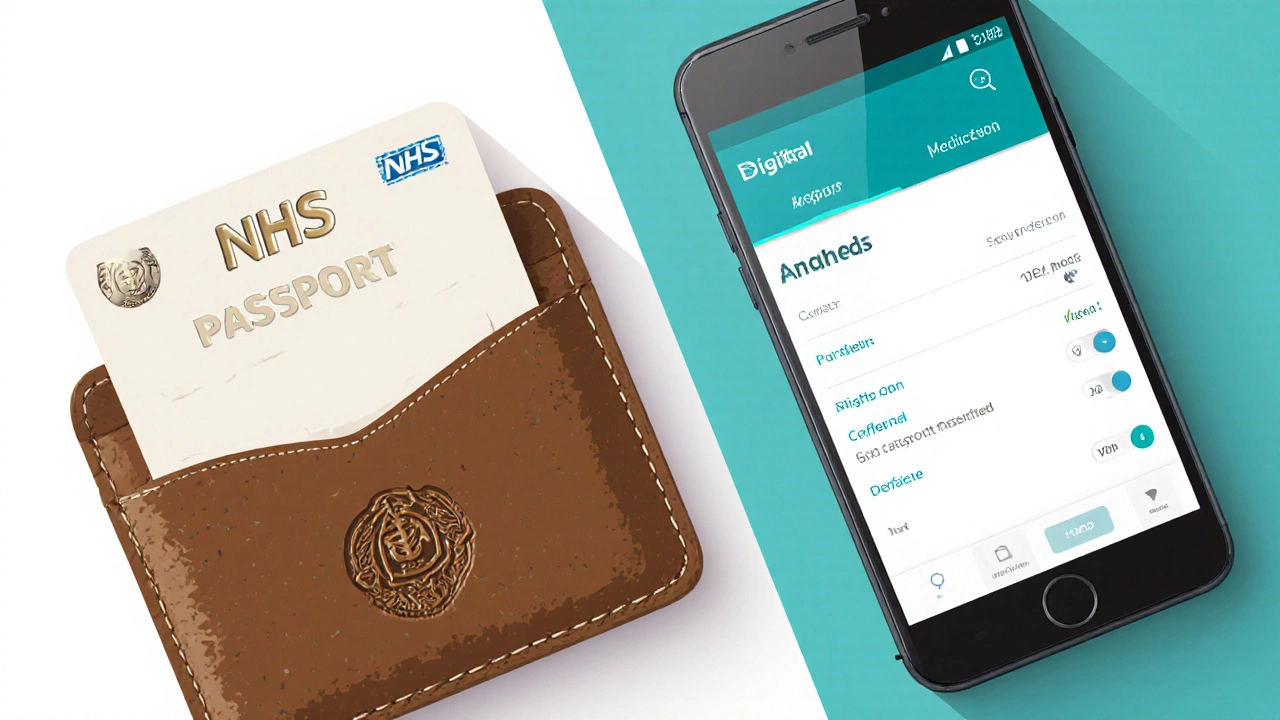
Physical vs. Digital Passports
| Feature | Paper Passport | Digital Passport |
|---|---|---|
| Portability | Fits in a wallet or travel pouch | Accessible on any smartphone or tablet |
| Ease of Update | Requires printing a new copy | Instantly edit via the app |
| International Acceptance | Widely recognised by doctors | Depends on local tech infrastructure |
| Risk of Loss | Higher if not stored safely | Can be backed up to cloud |
| Cost | Free to print (paper only) | Free apps available; some premium features may charge |
Who Can Get a Medication Passport?
Almost anyone on regular prescription medication qualifies. This includes:
- People with chronic conditions such as asthma, diabetes, hypertension, or epilepsy.
- Frequent travellers-business, leisure, or study abroad.
- Anyone who has experienced a medical emergency abroad in the past.
- Students on exchange programmes who rely on local health services.
If you’re a UK resident, the NHS will help you create the passport at no charge. Non‑UK residents should check with their national health authority or a local travel clinic.
Step‑by‑Step: How to Obtain Your Medication Passport
- Book an appointment with your GP. Explain that you need a medication passport for travel. Most practices can fit this into a routine review.
- Gather existing medication documents. Collect your latest Prescription Card which is a paper or electronic card that lists current medicines, dosage, and prescribing doctor, any repeat prescription sheets, and a copy of your most recent medication list from the Personal Health Record (PHR) that you may keep online.
- Ask your GP to prepare a summary. The GP will produce a concise document that includes drug name, strength, dosing schedule, known allergies, and any special instructions (e.g., “take with food”).
- Choose a format. Decide whether you want a printed version, a digital app, or both. Popular UK‑approved apps include NHS App and MyMedic.
- If you opt for paper, the practice will print the summary on a durable card.
- If you prefer digital, provide your email or mobile number so the practice can upload the file to a secure portal.
- Verify and sign. Review the document for accuracy. Your GP signs it, adding the practice’s contact details for verification.
- Collect the passport. Pick up the printed card at the practice or download the PDF/mobile version. Store it in a safe place-ideally alongside your passport and travel insurance.
The whole procedure usually takes 5‑10 working days, depending on practice workload.
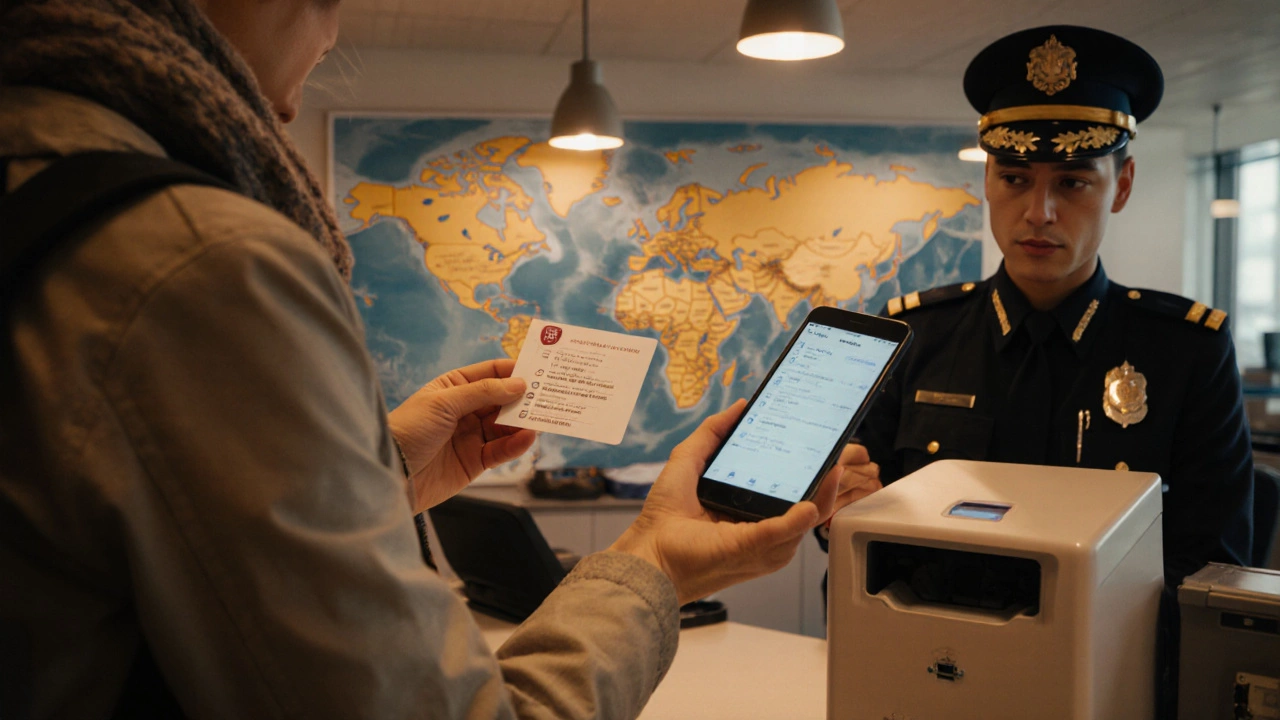
What to Include in Your Medication Passport
A well‑crafted passport contains four essential sections:
- Medication Details: Name (generic and brand), strength, dosage, frequency, and route of administration.
- Medical Conditions: Short description of the condition the medication treats, plus any relevant triggers.
- Allergies & Interactions: Document known drug or food allergies and any known interactions (e.g., “avoid grapefruit”).
- Emergency Contact: Name, relationship, phone number, and preferably a secondary contact. Emergency Contact is the person you want healthcare providers to notify in case of a medical emergency.
Some travellers also add a brief note about preferred language for medical communication.
Using the Passport Abroad
When you land at an international airport, customs officers may ask to see proof of medication if you’re carrying controlled substances. Show the passport first; it streamlines the conversation.
If you need medical care, present the passport to the attending clinician. The clear summary reduces the chance of medication errors, especially in busy emergency departments.
Should you require a refill while overseas, many hospitals accept a scanned copy of the passport combined with a local doctor’s prescription. Keep a digital copy accessible in cloud storage (Google Drive, iCloud) as a backup.
Common Pitfalls and Pro Tips
- Pitfall: Forgetting to update after a dosage change. Tip: Schedule an annual check‑up with your GP specifically to review the passport.
- Pitfall: Relying on a single format. Tip: Carry both paper and digital versions; you’ll thank yourself if the phone battery dies.
- Pitfall: Leaving out allergy information. Tip: Add a bold “Allergies” heading; it catches a nurse’s eye instantly.
- Pitfall: Using medical jargon. Tip: Write in plain language - “Take one tablet in the morning after breakfast”.
Frequently Asked Questions
Can I get a medication passport if I’m not a UK resident?
Most countries have a similar service through their public health system or travel clinics. In the UK, you need a registered NHS number, so non‑residents should ask their home‑country health authority for an equivalent record.
Is a medication passport legal proof for customs?
It’s not a legal document, but customs agents often accept it as supporting evidence for prescribed medicines, especially controlled drugs.
How much does it cost?
The NHS provides the service for free. If you choose a premium digital app with extra features, there may be a modest subscription fee.
What should I do if I lose my passport abroad?
Contact your GP’s practice immediately - they can issue a replacement PDF. Also, retrieve the cloud‑saved digital copy on your phone or email.
Do I need a separate passport for each trip?
No. A single passport stays valid as long as the medication information is current. Update it whenever you change prescriptions.

 Health and Wellness
Health and Wellness



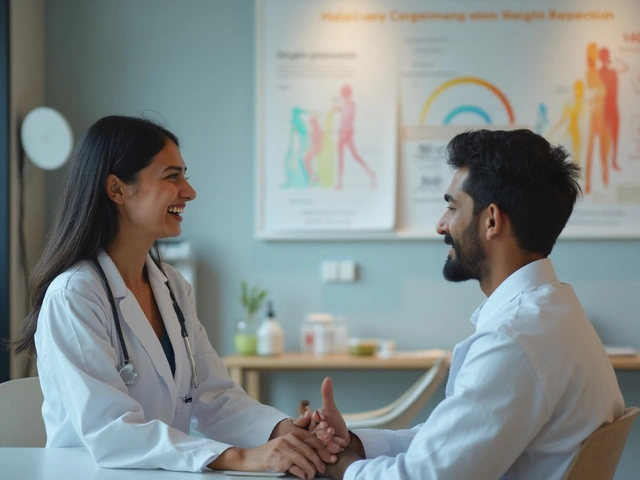
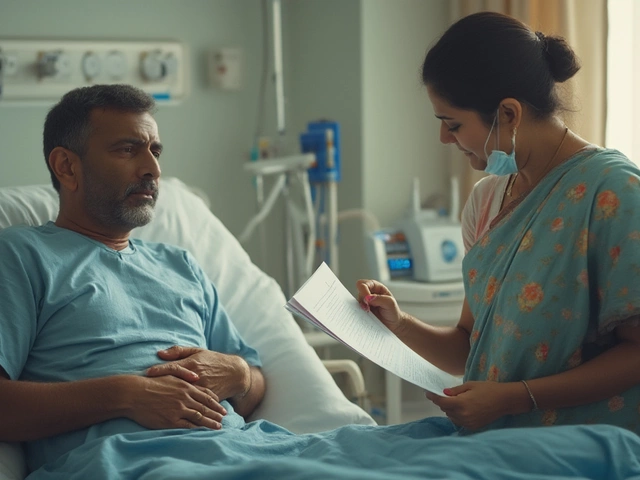
Write a comment